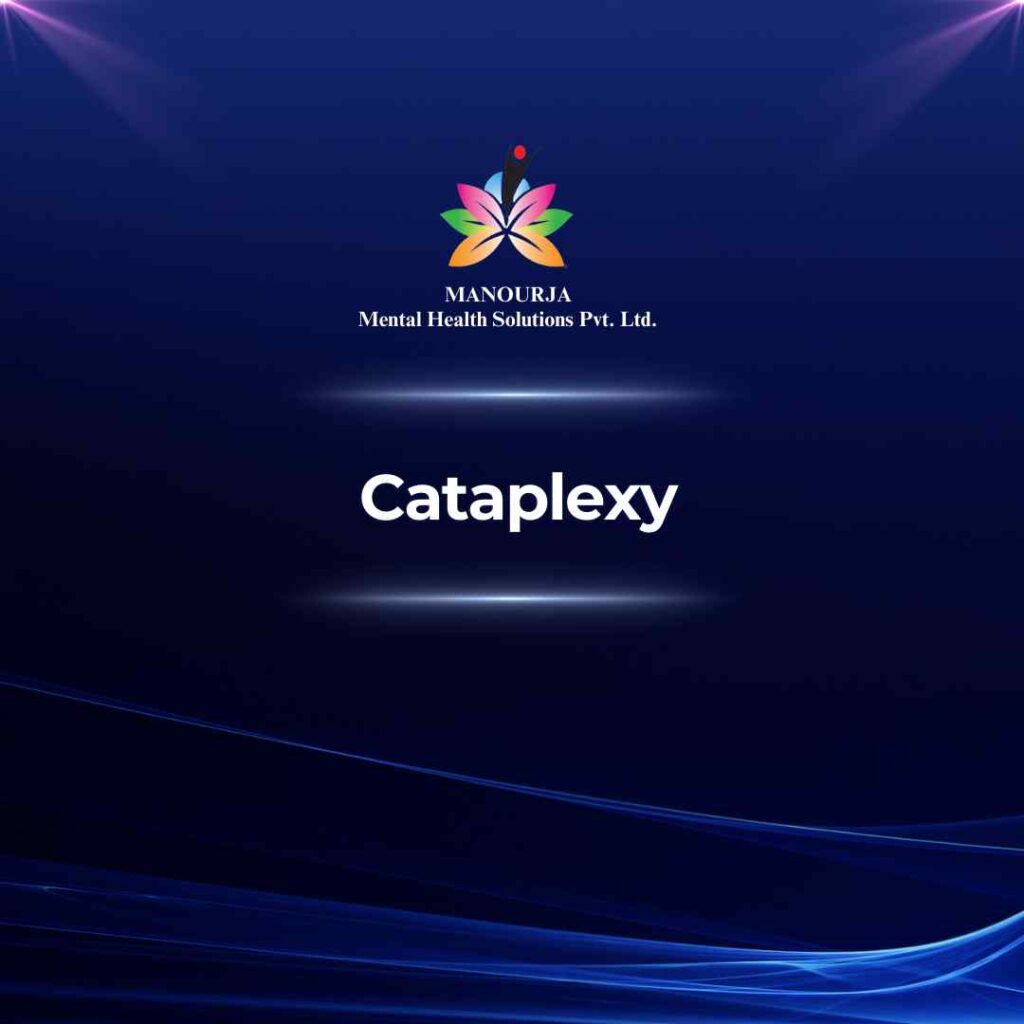Cataplexy

Cataplexy is a neurological condition characterized by sudden and temporary loss of muscle tone or control, leading to episodes of muscle weakness or paralysis. These episodes are often triggered by strong emotions such as laughter, excitement, or stress, and can range from mild weakness to complete collapse. Cataplexy is most commonly associated with narcolepsy, a sleep disorder characterized by excessive daytime sleepiness and abnormal REM sleep patterns.
Cataplexy as a Sign of Mental Illness
Cataplexy itself is not considered a symptom of mental illness but rather a neurological phenomenon associated with specific sleep disorders such as narcolepsy. However, individuals with mental health conditions may experience cataplexy as a secondary symptom or complication, particularly in cases of comorbid psychiatric and neurological disorders.
Mental Health Conditions Associated with Cataplexy
Narcolepsy with Cataplexy
- Cataplexy is a cardinal symptom of narcolepsy type 1, also known as narcolepsy with cataplexy. In this condition, individuals experience sudden episodes of muscle weakness or paralysis triggered by emotions, often leading to falls or collapse.
- Individuals with anxiety disorders may experience symptoms such as trembling, weakness, or feeling faint in response to intense emotions or stressors, which could resemble cataplexy-like episodes. However, these symptoms are typically transient and not associated with abnormal REM sleep patterns.
- Severe depression can sometimes manifest with psychomotor retardation or motor disturbances, including episodes of muscle weakness or decreased mobility that may resemble cataplexy. These symptoms are often accompanied by other features of depression such as low mood and fatigue.
Psychogenic Nonepileptic Seizures (PNES)
- PNES are paroxysmal events that resemble epileptic seizures but are not caused by abnormal electrical activity in the brain. Some individuals with PNES may experience episodes of apparent loss of muscle control or collapse triggered by psychological stressors or trauma.
Post-Traumatic Stress Disorder (PTSD)
- Individuals with PTSD may experience symptoms such as dissociation, flashbacks, or psychogenic episodes resembling cataplexy in response to traumatic triggers or reminders. These episodes are often associated with intense emotional arousal and distress.
While cataplexy itself is primarily associated with specific sleep disorders, it can also occur in the context of certain mental health conditions or psychological stressors. Differentiating cataplexy from other causes of muscle weakness or paralysis requires careful evaluation by medical professionals, including sleep specialists and mental health practitioners. Treatment approaches may involve medication, lifestyle modifications, and psychotherapy aimed at managing underlying conditions and improving overall functioning and well-being.
At MANOURJA, we believe in the transformative power of counseling. Our experienced therapists offer a safe and supportive space where you can explore your thoughts, emotions, and challenges. Through personalized counselling sessions, we’ll work together to develop coping strategies, build resilience, and achieve lasting positive change. Discover the path to a healthier, happier you with MANOURJA counselling services.
MANOURJA Rehabilitation Services
At MANOURJA, we’re dedicated to helping you in rebuild your life, after difficult times. Our rehabilitation services focus on understanding what you need to move forward, whether you’re recovering from addiction, trauma, or any psychological – social challenges. We create personalized plans, that are all about helping you, regain your strength and find hope again. With a caring team by your side, you’ll have the support to make real progress and take steps toward a brighter, healthier future.
